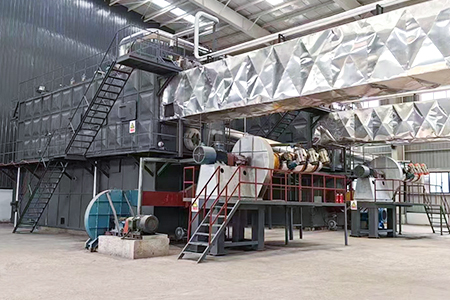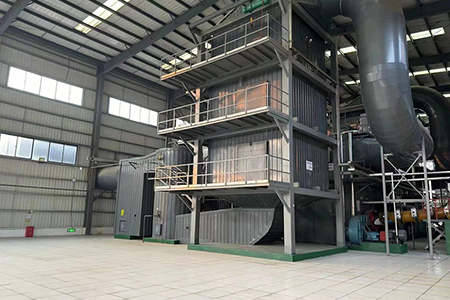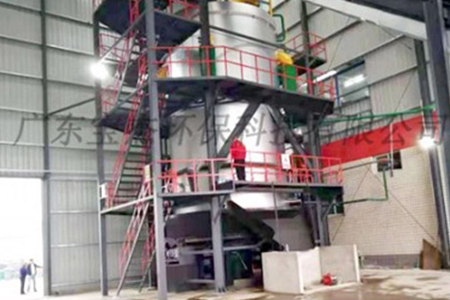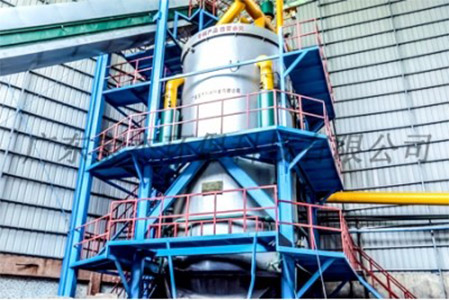НИОКР и производство оборудования для газификации биомассы, оборудования для защиты окружающей среды, котельного оборудования, инвестиции в эксплуатацию и управление тепловой (паровой) энергией.
Тел:+86 0769-82928980
Электронная почта:[email protected]
Новости отрасли
Biomass Gas Boiler: The Future Choice of Green Energy
With the increasing global attention to sustainable development and environmental protection, clean energy technology has become the key to solving energy crises and environmental pollution problems. In this context, biomass gas boilers (Biomass Gas Boiler), as an efficient and environmentally friendly heating equipment, are gradually gaining widespread attention. It can not only effectively utilize renewable resources, but also significantly reduce carbon emissions, providing clean and economical thermal energy solutions for industrial production and residents' lives.
Compared with traditional coal-fired boilers, biomass gas boilers have lower pollution emissions and higher energy utilization, and are an important tool for achieving green transformation.
The core of biomass gas boilers lies in biomass gasification technology and combustion system. Its workflow is roughly divided into the following steps:
Raw material preparation
Biomass raw materials (such as crop straw, forestry waste, rice husks, etc.) are pre-treated by crushing and drying to ensure that they are suitable for the gasification process.
Gasification reaction
In the gasifier, biomass raw materials undergo pyrolysis and reduction reactions under high temperature and oxygen-deficient conditions to generate combustible gas (i.e., syngas) containing hydrogen, carbon monoxide and methane. This process not only makes full use of the energy in biomass, but also reduces the pollution caused by direct incineration.

Gas purification
Synthesis gas contains impurities such as tar and dust, which need to be purified through processes such as cooling, filtering and catalytic conversion to improve gas quality and combustion efficiency.
Combustion and heating
The purified biomass gas enters the boiler combustion chamber, releases heat at high temperature, heats the water or heat transfer medium in the boiler, and thus produces steam or hot water for users.
Outstanding environmental performance
The biomass gas boiler burns renewable biomass gas, and its carbon emissions are much lower than fossil fuels. In addition, the ash produced during the biomass gasification process can also be used as fertilizer or building materials to achieve resource recycling.
Significant economic benefits
Biomass raw materials are widely available and low-cost, especially in areas rich in agricultural and forestry resources, which can greatly reduce fuel costs. At the same time, many countries and regions provide subsidies or tax incentives to enterprises using biomass energy, further improving its economic efficiency.
Energy security and reliability
Biomass gas boilers do not rely on imported fossil fuels, which helps to enhance energy independence. In addition, biomass gasification technology can flexibly adjust the type and scale of fuel according to demand, and adapt to the application of different scenarios.
Wide range of applications
Biomass gas boilers can be used in a variety of occasions, including industrial production (such as food processing, textile printing and dyeing), district heating, greenhouse planting, and waste heat recovery in garbage treatment plants.
Industrial field
In the manufacturing industry, biomass gas boilers can replace traditional coal-fired or oil-fired boilers to provide a stable supply of heat energy for production lines. For example, paper mills can use waste wood and pulp residues as raw materials, which not only saves energy costs but also reduces waste accumulation.
Agriculture and rural areas
Rural areas are rich in crop straw and forestry waste, which can be converted into heat energy through biomass gas boilers for winter heating, grain drying or greenhouse planting.
Urban heating
With the acceleration of urbanization, the demand for centralized heating is growing. Biomass gas boilers, with their clean and efficient characteristics, have become an ideal choice to replace traditional coal-fired boilers, especially in small and medium-sized towns and community heating projects.
Waste treatment and energy recovery
The organic components in urban domestic waste can be converted into biomass gas through gasification technology, and then used in boiler combustion for power generation or heating, achieving waste reduction and resource utilization.
Although biomass gas boilers have many advantages, they still face some challenges in actual promotion:
High technical threshold: Biomass gasification and purification technology requires high R&D investment and technical support.
Unstable raw material supply chain: Some regions lack a complete biomass raw material collection and transportation system.
Large initial investment: Compared with traditional boilers, the purchase and installation costs of biomass gas boilers are higher.
With the increase in policy support, the continuous improvement of technical level and the enhancement of public environmental awareness, these problems are gradually being solved. In the future, biomass gas boilers are expected to be popularized worldwide and become an important force in promoting the green energy revolution.
With its environmental protection, economy and high efficiency, biomass gas boilers are becoming a star product in the field of clean energy. It not only provides humans with sustainable heating solutions, but also makes positive contributions to protecting the earth's environment. Under the guidance of the "dual carbon" goal, biomass gas boilers will surely occupy an important position in the future energy landscape and help us move towards a greener, lower-carbon future.
Быстрые ссылки
связаться с нами
 Тел: +86 0769-82928980
Тел: +86 0769-82928980 Факс: [email protected]
Факс: [email protected] Электронная почта: [email protected]
Электронная почта: [email protected] Адрес компании: 13333, Китай, город Дунгуань, поселок Далан, Южная дорога Иньлан, д. 288, здание торговой палаты Далан
Адрес компании: 13333, Китай, город Дунгуань, поселок Далан, Южная дорога Иньлан, д. 288, здание торговой палаты Далан Адрес фабрики:
Городской округ Шанвэй, поселок Хунцао, западная сторона центральной дороги и южная сторона дороги Чжунъюань в пределах Хунцаоюань
Адрес фабрики:
Городской округ Шанвэй, поселок Хунцао, западная сторона центральной дороги и южная сторона дороги Чжунъюань в пределах Хунцаоюань
Авторское право© 2022 Гуандун Бао Цзе Technology Co., Ltd.Все права защищены.


 RU
RU 





